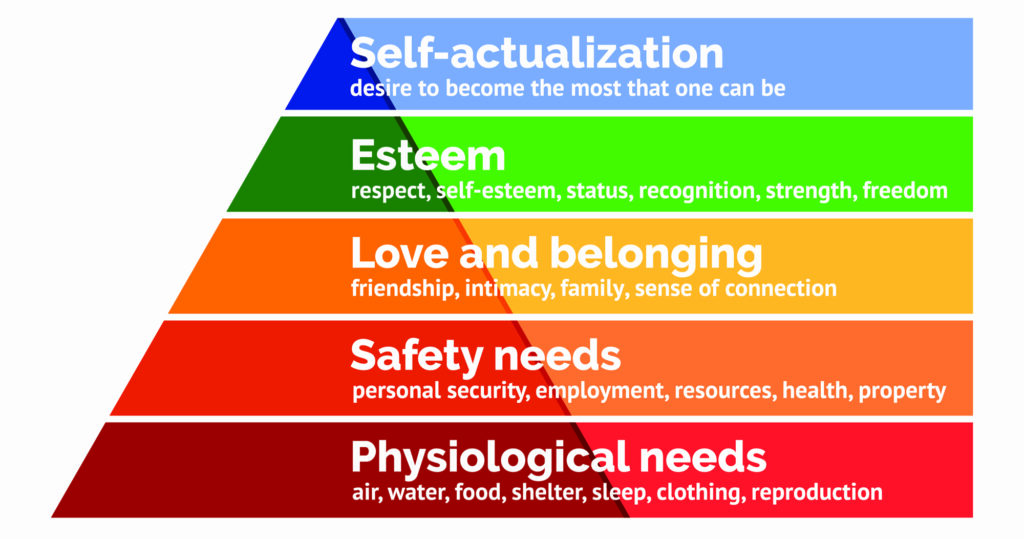Sadness is part of the many emotions we all experience through life, and every one of them is valid and essential for our general wellbeing.
Some emotions may create a sense of discomfort in ourselves, but feelings of sadness or anger are there to point out something in our life that isn’t good for us. So what should you do to stop feeling sad?
Even if we feel overwhelmed and drained, there are simple steps we can take to start feeling better.
1. Build and cherish meaningful connections
Sadness can make us feel judged or misunderstood, so we isolate ourselves even more to avoid negative emotions, but you’re not the only one who’s been there.
For every problem, there’s a place online!
If you’re feeling sad and lonely, focus on meaningful connections to feel understood. You could find authentic people on these platforms:
Improspeak: the place to find “your” people

Improspeak is a solid app where you can talk and share your thoughts and feelings in a community of like-minded people.
All you need is a webcam and a microphone, and Improspeak will match you with someone based on your shared interests, then you can start talking.
If you don’t know what to say or struggle to find topics to talk about, Improspeak gives you question cards that you can use to keep the conversation going.
A unique aspect of Improspeak is its way to keep moderation: after each chat, you will be able to rate your conversation buddy. This system keeps away pervs and bullies from the community.
So if you want to stop feeling sad by having meaningful conversations with interesting people, Improspeak is the perfect solution for you.
Be honest about what you’re feeling
Be honest with your feelings and reach out to your friends and family. There’s no shame in asking for help if you’re struggling by yourself.
Maybe you could ask a friend to call you or text you when you’re feeling sad so that you don’t overthink alone.
You may feel annoying to reach out your friends, but that’s just the negative state of your mind talking, and it doesn’t match the reality at all.
Everybody can have a hard time or a bad moment, and there is nothing wrong with talking with a friend. Maybe your brain only lets you see one way of thinking, and it’s dark and negative.
Challenge your head and give yourself a new perspective by talking to friends and family. You are not alone, and you are loved.
Paltalk: be yourself anonymously

Paltalk is an anonymous app that allows you to enter live chatting rooms about various subjects, from animals to mental health.
You can go with the flow and pick a random room with a topic you’re interested in, or you can create a group and host your room about anything you want to discuss.
If you’re camera-shy, Paltalk provides a wide range of filters and video effects to help you share your feelings and experiences anonymously.
2. Look for joy where you left it last time

Think about what you need physically and mentally, and start doing little things for yourself every day. If you’re feeling sad, think about things that used to make you feel joy and start by doing little steps.
Remember that there is no pressure to complete tasks or to be productive. Just do what makes you feel calm.
You can do something simple like reading a book before you go to sleep, taking a warm bubble bath, cooking your favourite dish by yourself.
It’s even better if you start some physical activities, even if it’s just dancing in your room or walking outside.
Self-care doesn’t necessarily mean spending money on massages or expensive treats. It simply means nurturing yourself by doing what gives you pleasure.
It might surprise you how you can learn to enjoy and value your own company!
3. You’re the captain of your thoughts and feelings

Feelings of sadness can be caused by several reasons or life-challenging situations. Whether you’re going through a loss, a breakup or a pressuring situation in your work life, you should stop and recognise this feeling.
You may think that suppressing your emotions and avoiding these feelings is the logical way to cope, but this could be unhealthy.
Allow yourself to feel what you feel, don’t judge and accept these thoughts as they come and go. If you suppress your feelings, they will get bigger and find a way to come out, so just let them flow through your mind and body.
Consider mindfulness and journaling to express your thoughts and emotions. This practice could make you notice how specific thoughts repeat themselves and if they’re correlated with specific triggering times or situations.
Take control of this pattern and change the situation.
Try this exercise: check your mood three times a day and write down how you’re feeling in the morning, midday and afternoon. Include what you did and how it made you feel on a scale from one to ten.
If you struggle to be consistent with this exercise and keep track of your mood swings, valuable apps can help you with daily reminders and specific activities.
4. Pet therapy: animals are professional joy pushers

Consider adopting an animal if you have the space, time, and money to welcome a pet in your home and life. Scientific studies show that living with a pet helps reduce stress, blood pressure and cardiac risks, other than significantly improving mental health.
Think about which pet you would prefer to have with you and look for animal shelters in your town. There are a lot of pets that feel lonely and need a forever home. You may save an animal’s life by adopting it and letting it be an amazing ally in your battle against sadness.
8. Ecotherapy: let the sun “wash away” the sadness

As we said that having pets is beneficial to your health, spending some time in nature has the same effects. It can make you feel connected to the world and put things in perspective: you are not alone; you are part of this ecosystem like everyone else around you. A walk in a park can have relaxing effects and improve your mental and physical health.
There is a professional treatment called ecotherapy which involves doing activities outside combined with physical activity and social contacts. It has been shown to help with mental health problems such as anxiety and depression.
Being outside in natural light can be helpful if you experience seasonal affective disorder (SAD), also called seasonal depression, that affects people during darker and colder seasons or times of the year.
If you can’t go out in nature, bring nature into your house! Activities like gardening or growing plants can teach you how to cherish these moments. By taking care of them, you learn to take care of yourself too.
9. Run faster than your negative thoughts

Physical activity benefits not only your body but also your mind. There is a significant correlation between our mood and moderate exercise, especially with mental health issues.
Exercise also alleviates symptoms like low self-esteem and social withdrawal.
The activation of your body and the exercise-induced blood circulation increase has an essential correlation with motivation, mood and memory. So let’s get physical!
You can do many exercises from your home, from yoga to high-intensity workouts; you just have to start. Remember: one single step is better than nothing.
4. A good mood starts with a good sleep

To “function” properly, we have different levels of needs, as explained by the psychologist Maslow in his famous pyramid scheme.
At the bottom of our needs, we have basic physiological ones like breathing, sleeping, eating, libido, homeostasis. To satisfy higher needs such as safety and self-esteem, we need to meet the basic ones.
Your emotional and psychological state has a significant impact on your physiology. If we’re struggling emotionally, we can quickly notice changes in our sleep, food, and libido habits.

But it’s also the other way around: your sleep influences your emotional stability, and if you tend to sleep too little or oversleep, it’s essential to keep a healthy sleeping routine to get back on track.
Notice if your sleeping habits have changed and how you can take them back to normal. Maybe you feel anxious and overthink at night, preventing yourself from falling asleep. You could try to do relaxing activities before you go to bed, such as a warm shower or a cup of relaxing herbal tea.
Avoid using the phone right before sleeping because the screen’s blue light keeps you awake. Be mindful of the food you consume before sleeping that could keep you awake, such as caffeine.
You can set a time to sleep, help yourself with specific apps like sleep monitor, or even do some relaxing meditation or ASMR.
You could also include a gratitude list in your sleeping routine: write down things that made you feel grateful or happy during your day. The more you think about it, the more things come to your mind!
Find what relaxes you and treat yourself!
5. Get the right fuel for your mind

As we said, eating habits could be affected and affect our mood.
You could lose appetite or overeat, and you can use some tips to keep a normal relationship with food.
If you catch yourself losing appetite and you’re too tired to eat, you can take preventive action by buying food that’s super easy to prepare or ready to eat.
Try to eat three times a day and set alarms to remind you, or ask a friend to facetime and eat with you if you need it.
Pay attention to what kind of food you’re putting in your body. Some foods make your mood worse, like fast food and sugary ones, so try to consume healthy foods such as fish, white meat, veggies and nuts.
Try to be mindful when you eat, do it slowly and avoid distractions, so you can let your body tell you when it’s full.
6. Declutter your space and your mind

Your physical space can totally affect your emotions and your thoughts. Keep your space fresh and clean, and your mood will become cleaner too!
Start with simple steps, like opening a window and letting the space (and your mind) breathe a little fresh air. Tidy up your home and light a candle that smells good to you.
Try to imagine what the ideal state of your space looks like, and go for it! If you struggle with this process, you may look up the Konmari method to keep a clean and decluttered space. Marie Kondo, the creator of this method, lets you get rid of things that don’t bring you joy instead of focusing on the clutter itself.
Once you start asking yourself “does it bring me joy?” you will begin to reflect upon your life decisions as well, not only the clothes you have in your closet.
10. When things are bigger than you

If these negative feelings persist for an extended time and you struggle alone, you should consider discussing them with a therapist.
We often think we can get through things by ourselves. You may feel that you are not struggling enough to get help or that other people have it worse than you.
But we don’t need it to be harmful to ask for help, and we deserve to get help as much as other people because we all struggle sometimes, and nobody has to keep feeling like this.
You wouldn’t say: “you don’t deserve to be happy; some people are happier than you”, so thinking you don’t deserve help when you’re not ok because someone has it worse is pretty much the same. Why should you stay feeling bad? It doesn’t have to be this way, and you can get better.
If you’re considering seeing a therapist, you can look up different therapy specialists based on your needs and find a therapist near you.
We’ve seen the development of several online therapy services during the pandemic because of social distancing, so if you don’t want to move from home, you can still start a therapy session online. Choose what is best for your needs and start getting better!
In conclusion
These are the best tips to overcome sadness, be patient with yourself and remember that what you’re feeling is normal! Whether you’re feeling down because of a specific situation in your life or without an apparent reason, you can start feeling better with these simple tips.
Don’t be afraid to ask for help if you need it, and take care of yourself!




